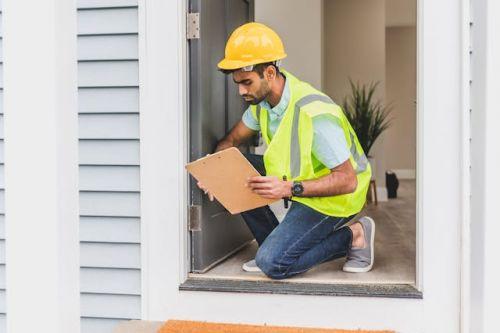Are you currently in the process of buying a home? Whether you're a first-time buyer or selling your current property to move elsewhere, it's important to factor in essential closing costs.
These expenses often catch people off guard and can significantly impact your budget if not planned for accordingly.
To help you navigate this, let's explore the legal and administrative fees that come with real estate transactions.
Buying a home: more than just a down payment
Buying a home involves more than just making a down payment. While it's well known that you need at least 5% of the purchase price upfront, which amounts to $22,500 on a $450,000 home, this sum often doesn't cover all the necessary expenses involved in securing your desired property.
In addition to the down payment, there are various other costs, commonly referred to as closing costs, that must be settled either before or at the notary's office when the transaction is formalized. Unlike your mortgage, these expenses typically cannot be rolled into your loan amount.

How much are closing costs in Quebec?
In Quebec, closing costs can vary depending on whether you are buying or selling a property.
As a general guideline, it's recommended to budget between 1.5% and 4% of the purchase price of the property for these expenses. For example, on a $450,000 home, you might expect closing costs to range from approximately $6,750 to $18,000.
For transactions involving a CMHC-insured mortgage, the minimum closing costs typically start at around 1.5% of the purchase price. However, it's prudent to budget for higher costs. A common recommendation is to plan for approximately 3% of the purchase price.
If you're both buying and selling properties concurrently, expect higher closing costs due to managing two transactions. It's advisable to budget for at least 4% of the total cash flow required to account for these additional expenses. It's also prudent to have an emergency fund to handle any unexpected expenses that might arise during the process.
What are the usual closing costs in a real estate transaction?
Closing costs include the various expenses involved during the final stages of a real estate transaction, covering both anticipated and unexpected financial obligations that arise throughout the process. Let’s look at the usual closing cost a property transaction may incur.
The buyer's closing costs
The buyer typically faces more expenses of closing costs compared to the seller in a real estate transaction.

Pre-purchase inspection
While not classified as a traditional closing cost, allocating funds for a pre-purchase inspection is crucial in the home-buying process. This inspection serves to protect against unexpected issues and potential defects. Costs can vary depending on factors such as location, property type, inspection complexity, and the inspector's fee structure. As a guideline, budgeting at least $650 plus taxes is typical for a single-family home inspection.
Land transfer tax
In Quebec, the land transfer tax, often referred to as the "welcome tax," is payable a few months after signing the deed at the notary's office. This tax amount varies based on the purchase price of your property and the municipality where it is located.
Sales taxes
When purchasing a new property in Quebec, it's important to budget for GST (5%) and QST (9.975%). These taxes apply to new constructions and are included in the purchase price. However, there is potential for a tax refund if you meet specific eligibility criteria and apply for it.
In contrast, if you buy a property on the resale market, these taxes do not apply.

Notary fees
The buyer is responsible for covering the costs related to verifying the title, preparing and signing documents, typically ranging from $450 to $500.
Additionally, notary fees for a real estate transaction in Quebec starts at an average of $1,200 plus taxes.
Depending on the involvement of the real estate professional and the complexity of the transaction, there may also be circumstances where the seller is required to contribute to the notary's fees.
CMHC mortgage loan insurance
If your down payment is less than 20% of the property's purchase price, you are typically required to obtain CMHC mortgage loan insurance. This insurance protects your lender if you default on payments. While it's not typically categorized as a closing cost because it can be spread out over your mortgage term, it's crucial to understand its significance in the overall cost of purchasing a home.
Moreover, in Quebec, CMHC mortgage loan insurance is subject to provincial sales tax, which must be paid in full at the time of the transaction.
Title insurance
Title insurance, although not always mandatory, might be required by some lenders as a precautionary measure. It offers protection in situations involving title defects or ownership disputes that may surface after the property purchase.
Unlike other types of insurance, title insurance is generally paid as a one-time lump sum at the time of closing.

Adjustment of expenses already paid by the seller
If the seller has already paid certain property-related expenses such as property taxes or utilities, you may be required to reimburse them for a portion of these costs after the closing date. The specific amount owed will depend on the expenses already settled by the seller and any outstanding balances that need to be covered.
The seller's closing costs
Just like the buyer, the seller of a property is accountable for various fees and expenses.
Certificate of Location
The Certificate of Location is an essential document in real estate transactions as it confirms property boundaries, structural locations, and compliance with regulations.
In Quebec, it is obligatory for the seller to provide this document to the buyer. If the seller does not possess a current certificate or if the existing one is outdated, they must hire a licensed land surveyor to prepare a new certificate.
According to the Ordre des arpenteurs-géomètres du Québec (OAGQ), the fee for preparing a certificate of location for a single-family home is approximately $1,550, although prices may vary among surveyors.
Mortgage prepayment penalties
When a homeowner sells their property before the end of the mortgage term, they often face an early repayment penalty payable to their financial institution. The cost of this penalty varies depending on how the lender calculates it and the amount of time remaining until the term concludes.
Typically, the sooner the mortgage contract is terminated, the higher the penalty tends to be due to the interest losses incurred by the lender.

Mortgage discharge fees
To complete the transfer of ownership, the notary must obtain a discharge mortgage agreement, which involves a fee of approximately $150 for removing the mortgage from the land registry.
Furthermore, the notary will charge additional fees for managing this service.
Real estate broker's commission
When you sell your home through a real estate agent, you are obligated to pay the broker's commission upon the closing of the sale.
The commission charged by a real estate broker is negotiable and can vary among professionals, generally ranging between 4% and 7% of the sale price.
If the buyer also employs a real estate agent, the commission is typically divided between the two agents involved in the transaction.
Other costs to consider
In addition to the direct costs associated with buying a home, there are several ongoing expenses related to homeownership that should be factored into your budget:
- Home Insurance: This protects your property against potential losses.
- Property Taxes: These are annual taxes based on the assessed value of your property.
- Condominium Fees: If you're purchasing a condominium, these fees cover maintenance of common areas and amenities.
- Moving Expenses: Costs associated with relocating to your new home
- Maintenance and Repair Costs: Regular upkeep and occasional repairs to maintain the condition of your property over time.
A comprehensive budget that includes these expenses alongside your initial closing costs helps ensure you're financially prepared for homeownership. Proper planning reduces the risk of unexpected financial strains and enhances your ability to manage the entire home buying process effectively.
Are you looking to buy or sell a house?
XpertSource.com can help you find a real estate broker. When you tell us about your project, we put you in touch with qualified resources for free. Simply fill out our form (it only takes a few minutes) and we will connect you with professionals.

